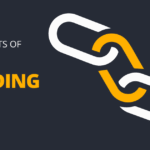The cryptocurrency world is growing at a breakneck pace, bringing unprecedented opportunities for investment, trade, and innovation. However, this rapid development comes with its own share of risks, especially in terms of security. From stolen assets to hacked wallets, the threats to your crypto investments are real. This blog will equip you with essential knowledge about cryptocurrency security, provide practical tips for protecting your assets, and spotlight eCRYPTO1.com as a trusted resource for navigating the crypto landscape safely.
Introduction to Cryptocurrency Security
Cryptocurrencies operate on a decentralized framework, which means they aren’t controlled by any single authority. While this setup is innovative and empowering, it also comes with unique risks. Unlike traditional banks or payment processors, there are often no safety nets if things go south. A single misstep, whether a weak password or a poorly chosen platform, can lead to irreversible financial losses.
The digital nature of cryptocurrencies makes them an enticing target for cybercriminals. Whether you’re a seasoned trader or just starting, understanding and prioritizing crypto security is non-negotiable.
Understanding Common Crypto Threats
Awareness is the first line of defense. Here are the most common threats faced by crypto users:
1. Phishing Attacks
Phishing scams trick users into divulging sensitive information such as wallet keys or login credentials. Often, attackers pose as legitimate entities through fake emails or websites to manipulate their targets.
Example: A scammer pretends to be a support team member from a popular exchange, asking you to “confirm your wallet credentials” through a bogus link.
2. Malware
Malicious software can infiltrate your device, granting attackers access to your wallets and private keys. Trojan horse viruses are a common tool in this kind of attack.
3. Exploiting Smart Contracts
For those involved in decentralized finance (DeFi), insecure smart contracts are a significant vulnerability. Poorly written code can be exploited, leading to drained funds.
4. Human Error
Simple mistakes, such as sending crypto to the wrong address or losing your private key, can result in permanent financial losses. These errors are common and underscore the importance of education and vigilance.
Best Practices for Securing Your Crypto Assets
While the landscape of crypto threats may seem daunting, adopting some proactive measures can massively reduce your risk:
1. Use a Hardware Wallet
Keep your crypto offline with a hardware wallet, also known as “cold storage.” This kind of storage keeps your private keys disconnected from the internet, making it nearly impossible for hackers to access them. Trusted options include Ledger and Trezor.
2. Enable Two-Factor Authentication (2FA)
Always add a second layer of security to your accounts by enabling 2FA. Services like Google Authenticator provide a time-sensitive code as an added layer of protection.
3. Secure Your Recovery Phrases
Write down your wallet recovery phrase and store it somewhere safe. Avoid saving it digitally, as doing so may expose it to cyberattacks.
4. Regularly Update Software
Be it your wallet, operating system, or antivirus software, updates often include patches for known vulnerabilities. Ensure you’re always using the latest versions.
5. Conduct Due Diligence on Platforms
Before entrusting your assets with any exchange or wallet provider, research their reputation, security measures, and audit records. Look for platforms that offer features like multi-signature wallets and advanced encryption.
Tools and Technologies for Enhanced Security
Beyond best practices, leveraging modern tools and technologies enhances security even further. Here are some worth exploring:
- Multisignature Wallets
These wallets require multiple private keys to authorize a transaction, adding a layer of security against unauthorized withdrawals.
- Decentralized Finance (DeFi) Security Tools
Platforms like CertiK and Quantstamp audit smart contracts to ensure they are free from vulnerabilities. DeFi users should leverage such audited solutions.
- Password Managers
Tools like LastPass and Dashlane securely store and manage complex passwords for your accounts, reducing the risk of weak or reused credentials.
- Blockchain Security Services
Platforms like eCRYPTO1.com provide expert-backed guidance on maintaining crypto security while navigating complex ecosystems like DeFi, NFTs, and staking.
Staying Informed and Adapting to New Threats
The crypto security landscape is dynamic. New threats can emerge suddenly, so staying informed is crucial. Here’s how you can stay ahead:
- Follow Trusted Sources
Platforms like eCRYPTO1.com deliver updated insights into the latest vulnerabilities and best practices for mitigating risks.
- Engage in Continuous Learning
Read guides, take online courses, and follow reputable blogs focused on crypto security.
- Stay Skeptical
If an offer sounds too good to be true, it probably is. Always verify the authenticity of any opportunity or communication in the crypto space.
Why Your Crypto Security Should Start with eCRYPTO1.com
eCRYPTO1.com is more than just a platform for crypto education and technology; it’s a resource you can trust. Here’s what makes eCRYPTO1.com a trusted ally for crypto enthusiasts:
- Expert Content
From beginner guides on wallets to advanced insights on DeFi security, our content empowers users at every level.
- Proven Strategies
Our best practices are backed by leading blockchain security experts.
- Community Engagement
Join a growing community of crypto enthusiasts through interactive learning and shared experiences.
Explore our Crypto Security 101 Guide for a deeper understanding.
Always Put Security First
The crypto market holds enormous opportunities but also significant risks. By using the outlined tips and reliable tools such as eCRYPTO1.com, you can safeguard your investments and enjoy the benefits of this revolutionary financial technology.
Don’t wait for a security breach to take action. Whether you’re an investor, a trader, or a casual user, make the effort today to prioritize your crypto security.





